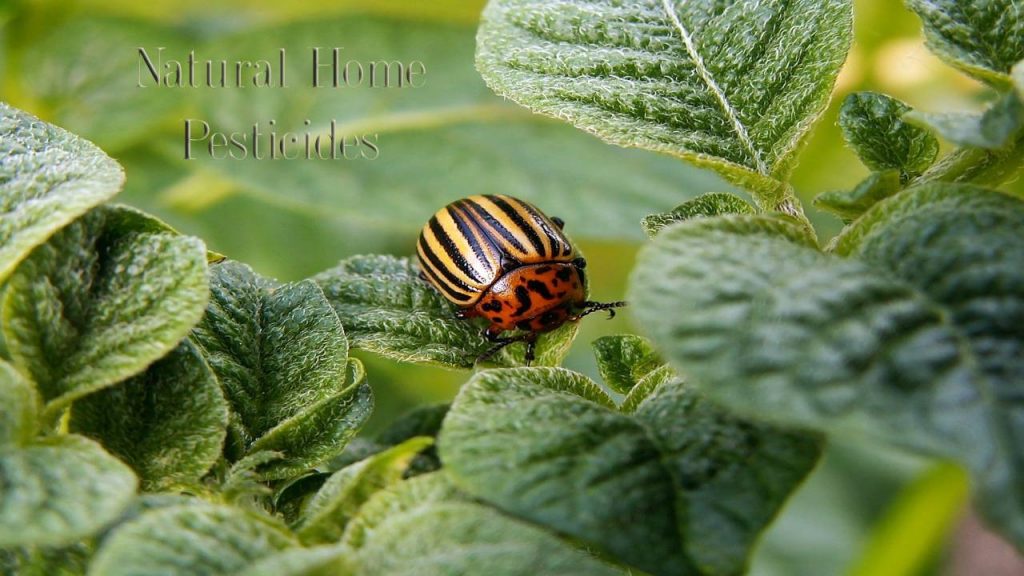When learning about the challenges and difficulties of farmers who create our food, nothing compares to a home garden. Not only are home gardens subject to a wide range of threats, but there are significant challenges as well, especially concerning’s soil fertility. While using organic methods instead of herbicides, pesticides, and fertilizers to grow crops can be a humbling experience, especially when using methods that require as little time as possible. Hand-weeding is time-consuming and tedious, so you need to find better ways to manage your garden.
You must remember that just because they’re “natural” or “DIY” home pesticides doesn’t mean they can’t damage your soil, plants, or you. An insecticide, often known as a pesticide, is described as “any chemical used to prevent, kill, repel, or minimize pests.” As such, these compounds can be harmful to humans, animals, or the environment. Of course, not all insects are dangerous. When you use potent pesticides indiscriminately, you can harm even beneficial insects, which might negatively impact your local garden ecology.
Before using any pesticide or insecticide, do your research and choose the one that is both effective and least hazardous to you and your garden. The better alternative would be to trust in bug, tick, or pest control measures. However, in extreme cases, you’ll need to contact pest control so you won’t further destroy your garden and your neighbors’ gardens.
With that in mind, here are some natural pesticides you can use at home:
Table of Contents
Vegetable Oil Spray
Many kinds of pest insects, including aphids, mites, thrips, and others, can be killed using a DIY pesticide composed of vegetable oil and mild soap. To create this oil-based insecticide, you’ll need one cup of vegetable oil and one tablespoon of soap. Once you have this ready, mix two teaspoons of the oil mixture with one quart of water to create a spray. Apply this directly to the areas where you’ve discovered the pests. In effect, the oil smothers the insects by covering their respiratory systems, effectively suffocating them.
Soap Spray
Soap sprays are also helpful in killing aphids, whiteflies, beetles, and other hungry insects. Mix one and a half teaspoons of a moderate laundry detergent with one quart of water and sprayed this mixture on diseased surfaces of plants to create an essential soap spray insecticide. A soap spray insecticide operates similarly to an oil spray pesticide. You’ll only need to use this spray in the nights or mornings when the weather is cooler.
Neem Oil
The oil extracted from the seeds of the neem tree is a powerful natural pesticide that can disrupt the life cycle of insects at all stages (adult, larval, and egg). This is why neem oil has always been a popular ingredient in any natural insect repellant or insecticide and is an excellent alternative for organic gardeners. Luckily, you can make a natural pesticide on your own using this main ingredient quite easily.
The hormone-disrupting and antifeedant properties of neem oil make it effective against insects that feed on plant components such as leaves. Additionally, neem oil is a natural fungicide that is effective against powder mildew and other fungal diseases on plants. Neem oil is also biodegradable and safe for dogs, birds, fish, and other animals. Neem oil is also a natural insect repellent. There are several garden stores and natural foods markets where you can get them.
Other Natural Alternative
There are so many more organic pesticides on the market. Here are other alternatives you should consider:
Keep in mind, you shouldn’t rely on the organic and handmade insecticide recipes listed here. These are a good starting point for creating your insecticide, but every organic farmer has their own mix and ratio of different components. Make sure to pay careful attention to the effects of a given recipe, so you can create an effective mixture that best suits your needs.
Here’s an essential piece of information to keep in mind: eradicating all insects in your garden isn’t always what you want to do. Remember, an intact ecosystem also requires many beneficial insects, microbes, and fungi in the soil and plants themselves. Pest control can be as simple as adding additional invasive predatory insects (ladybugs, praying mantises, and the like) or creating environments in which these predatory insects will thrive and improving soil fertility.

